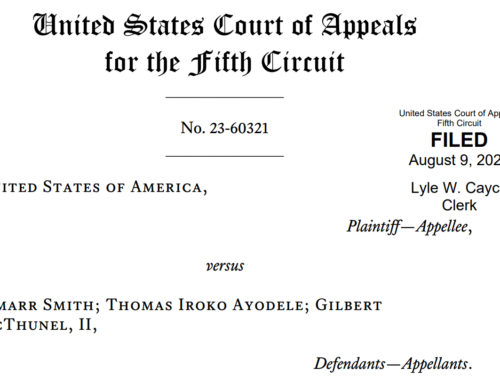Google Data Policy Change: Implications for Florida Geofence Warrants
What Are Geofence Warrants And How Do They Impact Your Privacy Rights?
Geofence warrants allow police to request location and movement data from Google on all users within a specific area during a particular time period. With just this blanket search warrant, officers can access incredibly revealing personal information without having any evidence tying that data to a specific crime.
So, if there’s a robbery on your block, you could have all your sensitive phone data handed over just because you live nearby or walked past at some point. These digital dragnet searches pose a dangerous threat to Fourth Amendment privacy rights.
And make no mistake – the location data Google collects can expose where you sleep, who you meet with, health issues, and even when you go to worship. It’s an unprecedented invasion of privacy.
Appeals Case Questions Legality Of Geofence Warrants
A current case on appeal to the Fourth Circuit Court of Appeals challenges a geofence warrant used in a 2019 Virginia robbery investigation.
As defense attorneys, we believe these warrants violate the Constitutional prohibition on unreasonable searches by allowing police to dig through massive amounts of irrelevant data.
The original district court approved the warrant by denying the Defendant’s motion to suppress. But based on tough questioning during December oral arguments, it’s possible the appeals court may rule the warrant invalid on overbreadth or lack of probable cause grounds.
Such a precedent could offer us better arguments against geofence warrants here in Florida. However, a last-minute twist may reduce its impact.
Google Announcement Hampers Future Geofence Warrants
In a surprising December 2023 blog post, Google announced changes over the next year, giving users more control over stored location data. Timelines will now save directly on devices rather than company servers. This local storage makes the information less accessible to law enforcement.
Additionally, Google enabled auto-deletion of location history data after just three months. Previously, this was set to 18 months. This severely limits the historical breadth of data police can access.
What This Means For Florida Criminal Defendants
Suppose these changes go into effect before the appeals ruling. In that case, cops cannot cast such a wide net for location information, regardless of the legal precedent.
However, a strong court decision setting firm restrictions on geofence warrants could prove valuable by erecting another barrier against their use. It would make challenging the “good faith” argument easier when police cross the line.
In essence, Google’s policy update greatly reduces the potential privacy damage from geofence warrants. However, a robust Fourth Amendment ruling could provide vital reinforcement against what remains of this unethical surveillance practice. It would offer us more angles to protect our fellow Floridians.
If you or a loved one faces criminal charges that involve questionable search warrants or invasion of privacy, don’t hesitate to reach out. We have an extensive record defending Constitutional liberties in the Sunshine State, and we look forward to fighting overreach however it manifests going forward.
CALL US NOW for a CONFIDENTIAL INITIAL CONSULTATION at (305) 538-4545, or take a moment to fill out our confidential and secure intake form.* The additional details you provide will greatly assist us in responding to your inquiry.
THERE ARE THOUSANDS OF LAW FIRMS AND ATTORNEYS IN SOUTH FLORIDA. ALWAYS INVESTIGATE A LAWYER’S QUALIFICATIONS AND EXPERIENCE BEFORE MAKING A DECISION ON HIRING A CRIMINAL DEFENSE ATTORNEY ATTORNEY FOR YOUR MIAMI-DADE COUNTY CASE









